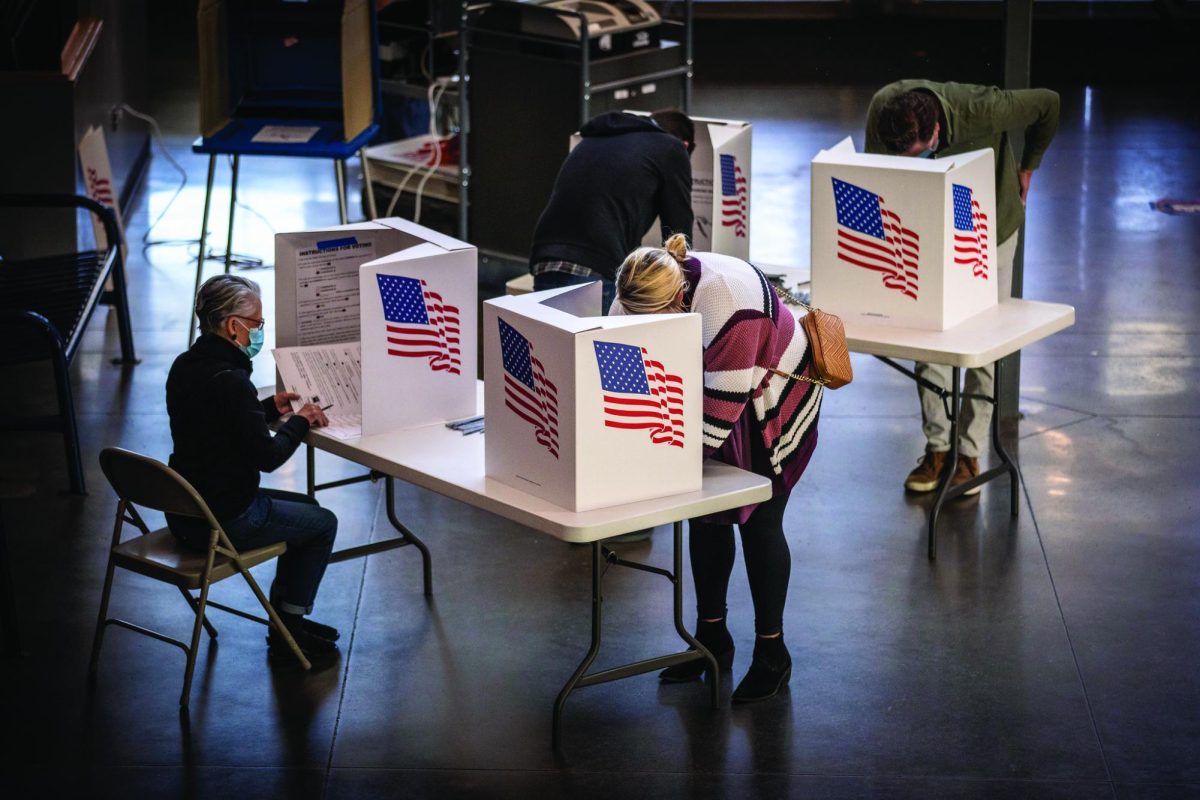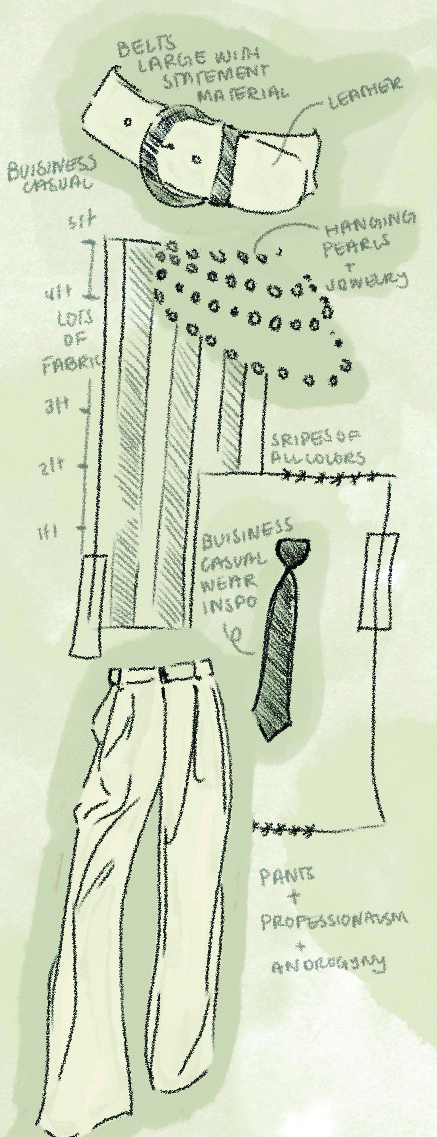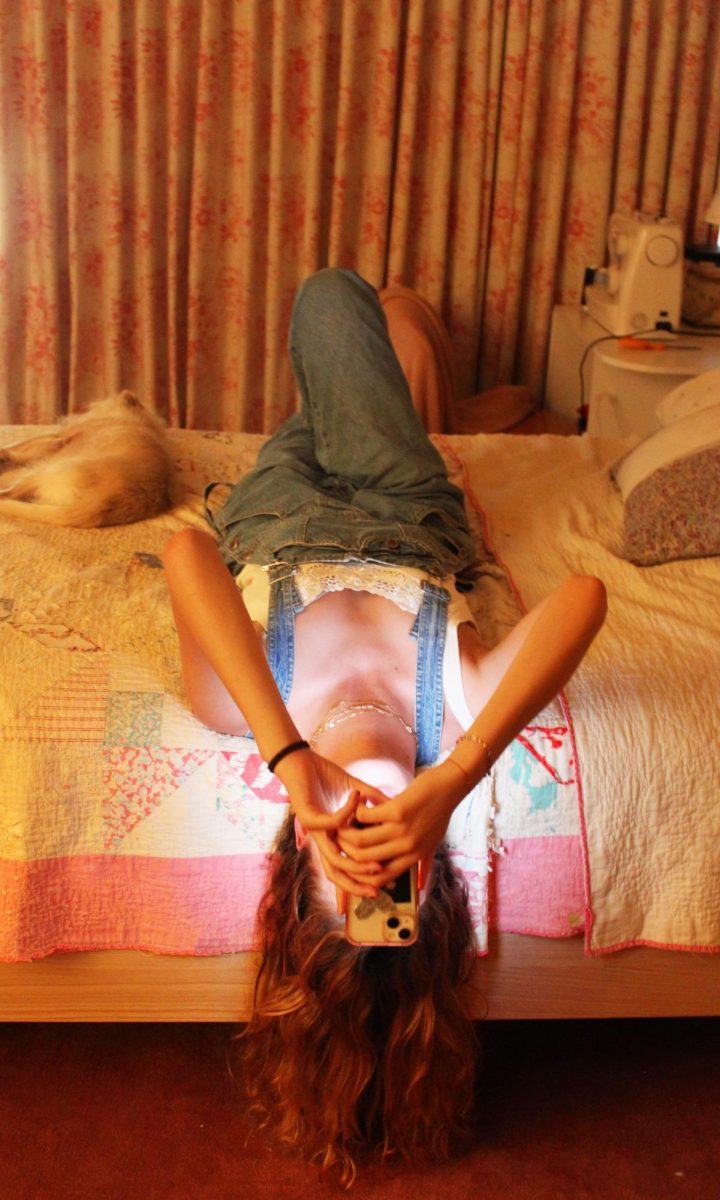
When Rabbi Chaim Baruch Rubin realized his father was getting older and could no longer hold religious services in his home on June Street, he decided to buy property at 303 South Highland so the people of their small Orthodox Jewish community would still have a place to pray.
He bought the building in 1995 and decided to call his shul, a place for Jews to worship, Etz Chaim, which means “Tree of Life” in Hebrew. After Rabbi Rubin started using it as a shul, neither the city nor the neighbors had any complaints. However, in 2003 when the 3,400-square-foot home transformed into an 8,150-square-foot shul, controversy emerged.
For 7 years the congregants of Etz Chaim, a small shul operating illegally out of a house, have fought with neighbors in the surrounding Hancock Park community. Etz Chaim breaks Los Angeles zoning regulations by operating without a permit in an R1 or residential zone, which primarily consists of single family homes. While members of Etz Chaim say they just want to pray in peace, neighbors in the area are distraught by the invasion of privacy, the noise and the visually offensive renovation of the building.
For many Orthodox Jews in Hancock Park, the shul provides a convenient place to worship and a strong sense of community. On the other hand, residents living in adjacent homes to 303 South Highland feel that the shul sets a precedent for other non-residential uses of houses, threatening the atmosphere of a traditional and conventional neighborhood.
THE RENOVATIONS
Esma Younis, a 72 year-old Lebanese woman and a member of the Greek Orthodox Church, has lived next door to 303 South Highland since 1973. Initially, there were no problems between Younis and Rabbi Rubin. Things took a turn for the worst when the Rabbi started to renovate.
“The Rabbi came by and said ‘Ms. Younis, we have decided to remodel the place. We’re not going to tear down any walls. The house will look the same. We’re only changing the inside,’” Younis recalled.
Younis signed the papers approving the renovation and to her dismay soon realized the shul was planning a much larger remodel then they had promised. “I felt like there was an earthquake,” Younis recalled. “I went to look in the backyard and saw that there was a bulldozer. The Spanish brick roof fell down, and they tore the whole house down.”
According to Michael Rosenberg, a member of the shul, the only reason for the renovations was to repair the damages from the 1994 Los Angeles earthquake.
“The Rabbi bought the home after the 1994 earthquake. Due to all the damages, the house needed a lot of repairs,” Rosenberg said. “The shul started doing construction to fix up the house, which angered the neighbors.”
Younis claims that standing on the shul’s outside stairs you can see into both her bedroom and a bathroom on the second floor of her house.
“My family and I don’t feel like we can sit outside and talk, because from the shul you can see into the backyard and clearly overhear conversation,” Younis said. “There’s no privacy wherever we are in the house.”
ZONING LAWS
Of the four different zones in Los Angeles — agricultural, commercial, industrial and residential — there is no designated zone for churches, synagogues or schools. Therefore, all religious and educational institutions need to apply for a Conditional Use Permit (CUP) from City Council allowing them to operate.
The shul applied twice for a CUP and was rejected both times.
A land-use consultant — who is not directly involved in this matter but is familiar with the policies and procedures of the City of Los Angeles — spoke to the UltraViolet under the condition of anonymity; the controversy of this issue makes it unprofessional for him to associate himself with one side of the conflict.
“Neighbors are concerned that if the shul gets a CUP, all the other houses on the street might become houses of worship too,” the land-use consultant said. “The neighbors would lose that residential feel and make it seem like they’re not living in a traditional neighborhood anymore.”
Younis said that no one would want to live next to a shul, and therefore the value of her home is much lower than it should be. But Rosenberg disagreed, saying that there is no difference between Etz Chaim and a regular house.
“Seven percent of all people who say they pray do so out of homes,” he said. “The government says that you can get together for a barbecue or a book club meeting, but if you start to pray, then you’re breaking the law.”
The shul has faced two separate lawsuits challenging its right as a religious institution to exist in a residential neighborhood, one filed by neighbor Esma Younis and the other by Hancock Park resident Leonard Hill, president and founder of the League of Residential Neighborhood Advocates (LRNA).
In spite of the lawsuits and lack of support from local government, the congregation is confident the federal government will protect them from being shut down. The Religious Land Use and Institutionalized Persons Act (RLUIPA), passed by President Clinton in 2000, outlaws land-use regulations that cause problems for any religious person or group. Etz Chaim is currently suing the city, arguing that the denial of a CUP contradicts RLUIPA.
“We will seek review in the Ninth Circuit and then the Supreme Court, if we do not prevail,” said Kathryn Davis, the shul’s lawyer. “This is an extremely important issue of religious liberty.”
THE MARLBOROUGH CONNECTION
The similarities between the shul at 303 South Highland and Marlborough School at 250 South Rossmore are inconspicuous at first glance. However, because the school is located in a residential area, Marlborough has also had to file for CUPs and appease unhappy neighbors.
The school currently has three CUPs: one for the general campus (including an amendment to the existing CUP for permission to build Munger Hall), a second for the parking lot across from the school at the South/West corner of Rossmore and 3rd, and a third for the Arden Project expansion of the campus. According to Nick Hernandez, Director of Finance and Operations at Marlborough, the school and its surrounding neighbors currently get along well.
“We recently had a really good meeting with the neighbors,” Hernandez said. “Ten to fifteen years ago, we wouldn’t have had a meeting like that.”
The school is lucky to have been granted certain expansion privileges; however, with those privileges come certain limitations from the Hancock Park community. The façade of the Third Street Parking Lot, as well as the outside of the school, has to fit in with the traditional style of Hancock Park homes.
Lynn Cohen, a neighbor to the school since 1993, said that the Third Street Parking Lot and the 12 houses used in the expansion of the Arden project originally worried many neighbors. However, Cohen said that the school tries to make an effort to listen to the neighborhood, and the community appreciates that.
“We had issues with the school when the parking lot was built because we think that R1 zoning should be protected in every case,” Cohen said. “But over time we think the parking lot actually started to look very residential. It turned out better than we expected.”
Cohen believes that R1 zoning is a very important thing to protect and that the case at 303 South Highland is a contentious subject among neighbors.
“I believe this is a zoning issue and not a religious issue. I think it’s important that people understand that,” Cohen said.
Stan Treitel, a member of Etz Chaim, points out that it shouldn’t be that difficult for the shul to receive a CUP in Hancock Park, considering that Marlborough has been able to expand so effortlessly in the past decade. Members of the shul said they felt that Marlborough was given preferential treatment by City Council because the school is secular.
“The fact is that people are intolerant,” Rosenberg said. “They can hide behind the zoning laws, but we know the real story.”
Rosenberg doesn’t think the issue will be resolved any time soon because it will be difficult for both sides to reach an agreeable compromise.
“The community here isn’t going anywhere. We’re an integral part of the society,” Rosenberg said. “We’re not going to be forced out; it’s as simple as that.”
Younis said that the shul tried to pay her off (a claim the shul denies), but she also said she won’t consider moving.
“I’m 72 years old. I don’t feel like packing and moving to another place unless I get good money for my house, which isn’t going to happen,” Younis said. “So, I’m staying.”


















